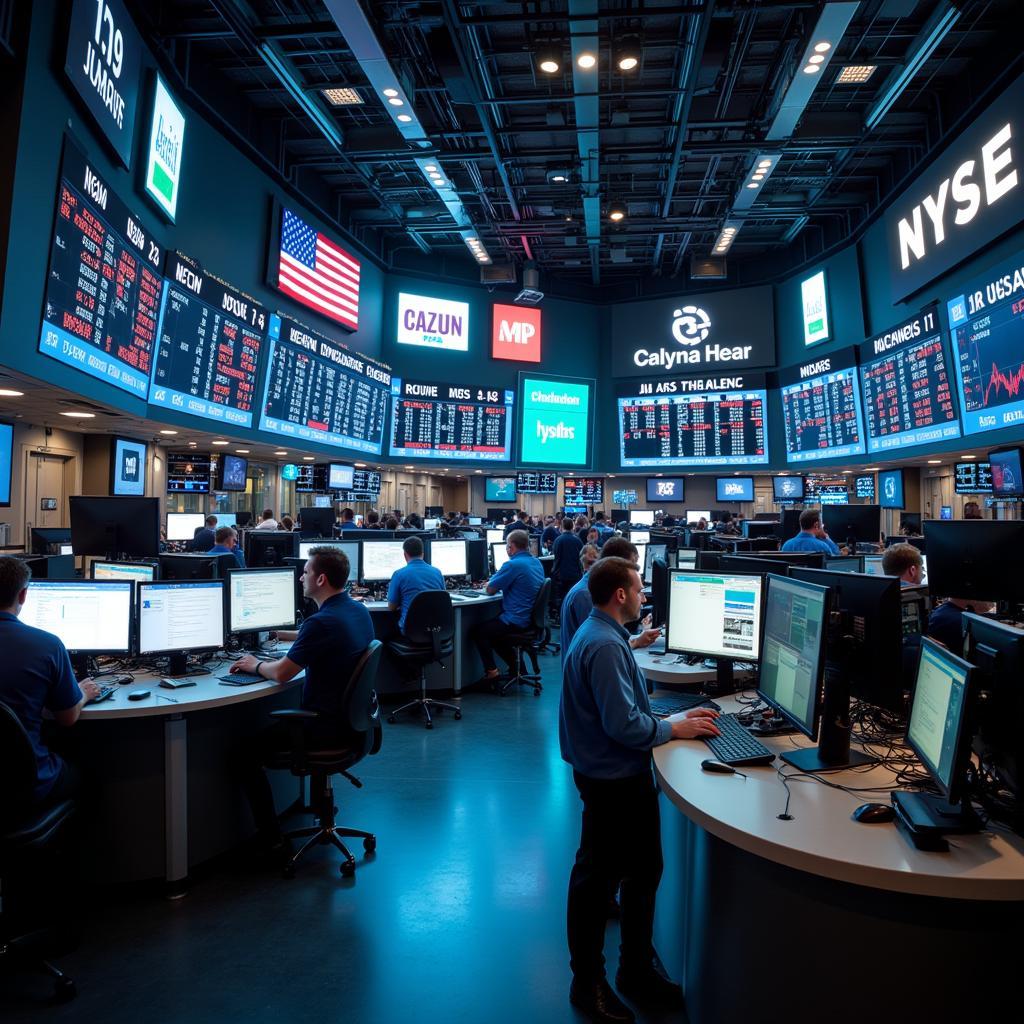The ongoing debate of Communism Vs Capitalism sparks heated discussions worldwide. These two distinct economic and political systems have shaped history and continue to influence the global landscape. This article delves into the core principles, historical contexts, advantages, and disadvantages of each system, providing a comprehensive understanding of their differences and implications.
Understanding Communism: From Theory to Practice
Communism, at its core, advocates for a classless society where the means of production are owned and controlled collectively. This ideology, popularized by Karl Marx and Friedrich Engels, posits that capitalism inherently creates inequality and exploitation.
Key Principles of Communism:
- Abolition of Private Property: In a communist system, private ownership of land, factories, and other resources is abolished in favor of communal ownership.
- Centralized Planning: The state, ideally representing the collective will of the people, manages the economy, controlling production, distribution, and pricing.
- Equal Distribution of Wealth: Communism aims to eliminate disparities in wealth by distributing resources based on need, striving for social and economic equality.
Historical Examples and Challenges:
The 20th century witnessed various attempts at establishing communist states, notably the Soviet Union and China. However, these implementations often deviated from the utopian ideal, facing challenges such as:
- Authoritarianism: The concentration of power in the hands of the state often led to suppression of individual liberties and political dissent.
- Economic Inefficiency: Centralized planning often struggled to adapt to changing market demands, leading to shortages and stagnation.
Exploring Capitalism: Free Markets and Individualism
In contrast to communism, capitalism emphasizes individual economic freedom and minimal government intervention in the market.
Key Principles of Capitalism:
- Private Property Rights: Individuals and corporations have the right to own and control property and resources.
- Free Markets: Supply and demand determine the prices of goods and services, fostering competition and innovation.
- Profit Motive: Individuals are incentivized to work, invest, and innovate by the potential for personal gain and wealth accumulation.
The Rise of Global Capitalism and its Discontents:
Capitalism has become the dominant economic system globally, driving technological advancements and economic growth. However, it has also been criticized for:
- Income Inequality: The pursuit of profit can lead to significant disparities in wealth distribution, creating social stratification.
- Market Volatility: Capitalist economies are prone to cycles of boom and bust, leading to economic instability and uncertainty.
 Stock Market Trading Floor
Stock Market Trading Floor
Communism vs Capitalism: A Head-to-Head Comparison
To further understand the nuances of these systems, let’s compare them across key aspects:
| Feature | Communism | Capitalism |
|---|---|---|
| Ownership | Collective ownership | Private ownership |
| Economic Control | Centralized planning | Free market forces |
| Wealth Distribution | Emphasis on equality | Driven by individual effort and market outcomes |
| Individual Freedom | Often restricted | Prioritized, but with limitations |
| Economic Efficiency | Can be challenged by bureaucracy | Generally more efficient, but prone to volatility |
Finding a Balance: The Emergence of Mixed Economies
In reality, most modern economies exist on a spectrum, incorporating elements of both communism and capitalism. These “mixed economies” attempt to harness the benefits of both systems while mitigating their drawbacks.
Examples of Mixed Economies:
- Social Democracies: Countries like Sweden and Denmark combine free market principles with robust social safety nets, promoting both economic growth and social welfare.
- State Capitalism: Nations like China have adopted a hybrid model where the state plays a significant role in directing the market economy.
 Swedish Parliament Building
Swedish Parliament Building
Conclusion: An Ongoing Debate in a Complex World
The debate surrounding communism vs capitalism remains complex and multifaceted. Both systems, in their pure forms, present inherent strengths and weaknesses. Understanding the historical context, core principles, and real-world implementations of these ideologies is crucial for navigating the complexities of the global economic and political landscape.
FAQ: Frequently Asked Questions about Communism vs Capitalism
1. What are the main differences between communism and capitalism?
The most significant difference lies in ownership and control. Communism advocates for collective ownership and central planning, while capitalism emphasizes private property and free market forces.
2. Has any country successfully implemented pure communism?
While many nations have experimented with communist ideals, achieving a pure form of communism has proven challenging due to practical limitations and the complexities of human behavior.
3. Are there any benefits to a mixed economy?
Mixed economies aim to balance the advantages of both systems, promoting economic growth while addressing social welfare concerns.
4. Which system is better: communism or capitalism?
The choice between these systems is subjective and depends on various factors, including cultural values, historical context, and individual perspectives.
5. What is the future of capitalism and communism?
As the world evolves, it’s likely that both systems will continue to adapt and influence global economic and political landscapes in various forms and combinations.
Need More Information?
For further insights and assistance, please don’t hesitate to contact us:
Phone: 02838172459
Email: [email protected]
Address: 596 Đ. Hậu Giang, P.12, Quận 6, Hồ Chí Minh 70000, Việt Nam.
Our dedicated customer support team is available 24/7 to address your inquiries.